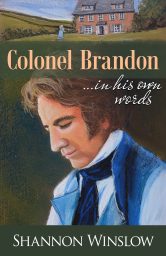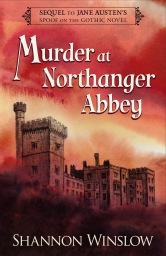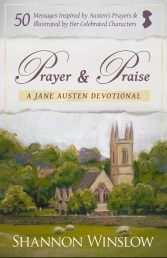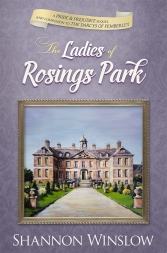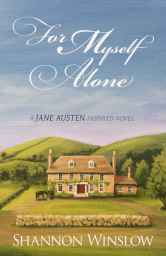“The person … who has not pleasure in a good novel must be intolerably stupid. I have read Mrs. Radcliffe’s works, and most of them with great pleasure. The Mysteries of Udolpho, when I had once begun it, I could not lay down again. I remember finishing it in two days, my hair standing on end the whole time.” (Henry Tilney, Northanger Abbey)
Is this Jane Austen’s way of tooting her own horn? Sure, but it’s probably her honest opinion as well. She and her family were enthusiastic novel readers, and, according to one of her preserved letters, “not ashamed of being so.” The idea of being ashamed to admit reading novels sounds absurd. In Austen’s day, however, when that literary form was in it’s infancy, the novel did not yet enjoy wide social acceptance. Plays and poetry were considered more the thing. Shakespeare, probably the most revered English author of all time, never wrote a novel, after all.
Because of the above reference in Northanger Abbey, I became curious about The Mysteries of Udolpho. It’s a real book, one Jane Austen read. Much to my surprise, I discovered it available through my local public library. I checked it out and read it. It took me at least a couple weeks (not two days like Henry Tilney), and I didn’t feel my hair standing on end even once, which was a disappointment. Tame by today’s standards and painfully long-winded. Wordy. Isn’t it somehow ironic to accuse a book of having too many words? Yet it’s a common criticism of “the classics.” Even in Jane Austen, who was not as given to exhaustive descriptions as most, you can find enormously long paragraphs and speeches compared to the soundbites we’re used to now.
That older style isn’t inferior; it was appropriate for the time. When books were one of the few sources of entertainment, I imagine readers wanted their treasured novel to last as long as possible. Precise, detailed descriptions were a plus for anyone not able to easily visualize other times, places, and social strata by simply turning on a television. Add the fact that writers (Dickens, for instance, with his serialized works) were sometimes paid by the word and the phenomenon is explained.
Nowadays, we have a lot to choose from, dozens of different mediums competing for our entertainment time and dollar. But I hope the novel never goes out of style (and not just because I write them). Come on, people! Turn off your digital devices and pick up something that’s stood the test of time: a good, honest read. Be reminded how reassuring the weight of a book feels in your hand, how satisfying it is to turn the pages one by one. Don’t be “intolerably stupid.” Read a novel!


